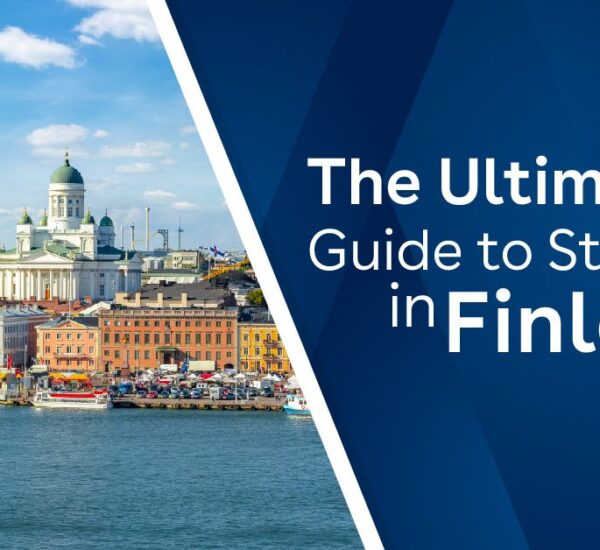Studying in the USA as an international student can be life-changing—but the cost of attendance often poses a major hurdle. Fortunately, American universities, governments, and private organizations offer a wide array of scholarships, grants, and financial aid packages to help talented students like you achieve your dreams. In this in-depth guide, we’ll explore:
- Proven Strategies to Boost Your Scholarship Odds
- The 3 Main Types of Scholarships Available
- Top Full-Ride Awards You Should Know
- Highly Competitive Partial Scholarships
- Hidden External Funding Sources
- Step-by-Step Application Tips
- Key Deadlines & Resources
1. Proven Strategies to Boost Your Scholarship Odds
Before diving into scholarship listings, it’s critical to optimize your profile for maximum competitive advantage:
Maintain a High GPA
Aim for a GPA of 3.5+ (on a 4.0 scale) in your most challenging courses—especially those related to your intended major.
Excel in Standardized Tests
Aim for SAT scores above 1400 or ACT scores above 30, unless you pursue test-optional schools. High GRE/GMAT scores also unlock graduate scholarships.
Demonstrate Leadership & Impact
Take on leadership roles in student government, community service, sports, or academic clubs. Real-world impact stories shine in essays.
Build a Strong Extracurricular Portfolio
Quality > Quantity. Commit deeply to 2–3 activities—e.g. captain your debate team, organize a charity drive, or publish research.
Gather Exceptional Letters of Recommendation
Secure 2–3 LORs from teachers, mentors, or employers who know you well and can portray your character, work ethic, and potential.
Craft a Memorable Personal Statement
Tell your unique story: challenges overcome, passions ignited, and future aspirations. Make it authentic, emotion-evoking, and well-structured.
Start Early & Plan Ahead
Create a scholarship calendar at least 12 months before enrollment. Track application windows, essay prompts, and recommendation deadlines.
2. The 3 Main Types of Scholarships Available
A. Full-Ride Scholarships
Coverage: Tuition + Room & Board + Fees + Books + Living Stipend + Health Insurance & Travel
Examples:
- Fulbright Foreign Student Program (fully funded graduate research)
- Knight-Hennessy Scholars at Stanford University
- Jefferson Scholars at University of Virginia
- Cornell University Trustee Scholarship
Keys to Success:
- Extraordinary Academics & Leadership (top 1% of your cohort)
- Unique Research or Service Projects with measurable impact
- Highly polished essays and interviews
B. Partial Scholarships
Coverage: Varies—often 25–75% of tuition or a fixed stipend
Examples:
Academic Excellence Scholarships at public universities (e.g., University of Illinois, Purdue)
Sports & Arts Scholarships (NCAA, collegiate band/orchestra awards)
Need-Based Institutional Aid (Harvard, Yale meet 100% demonstrated need)
Keys to Success:
- Solid GPA (3.2+) and test scores
- Targeted departmental awards matching your major
- Robust financial need documentation if need-based
C. External Scholarships
Coverage: Anywhere from $500 to full tuition, awarded by corporations, foundations, NGOs
Examples:
- AAUW International Fellowships (American Association of University Women)
- Rotary Foundation Global Grant
- Microsoft Tuition Scholarship
- Google Lime Scholarship for students with disabilities
- The “Forbes Future Leaders” Scholarship
Keys to Success:
- Carefully matched to your profile (STEM, women in leadership, underrepresented minorities)
- Attention to detail: tailor each application to sponsor’s mission
- Apply to multiple small awards—amounts stack up!
3. Top Full-Ride Awards You Should Know
| Scholarship | Institution/Organization | Level | Highlights |
|---|---|---|---|
| Fulbright Foreign Student | U.S. Department of State | Graduate | Covers tuition, stipend, travel, health insurance |
| Knight-Hennessy Scholars | Stanford University | Graduate | Up to 3 years funding + leadership development |
| Jefferson Scholars | University of Virginia | Undergraduate | Tuition, room & board, stipend, research funding |
| Cornelius Vanderbilt Scholarship | Vanderbilt University | Undergraduate | Full cost of attendance + enrichment experiences |
| Robertson Scholars Leadership | Duke University & UNC Chapel Hill | Undergraduate | Full ride + summer leadership institutes |
Application Tips:
Research past recipients to understand award culture
Prepare for multiple-round interviews (panel, individual, group)
Showcase global perspective and community service
4. Highly Competitive Partial Scholarships
Even if a full ride seems out of reach, hundreds of partial scholarships can significantly reduce costs:
Merit Scholarships at public flagships (e.g., UCLA Regents, University of Michigan Provost)
Texas Exes Distinguished Scholarships at University of Texas at Austin
Out-of-State Tuition Waivers for top N.C. community college transfer students
Women in STEM Scholarships (Society of Women Engineers, AWIS)
First-Generation College Student Awards
Application Tips:
Highlight departmental achievements (e.g., coding projects for CS, lab publications for biology)
Demonstrate strong letters of expected contributions to campus life
Provide clear financial need statements if required
5. Unlocking External Funding Sources
Thousands of external scholarships target specific demographics, majors, or career goals:
| Scholarship | Focus Area | Award Size |
|---|---|---|
| AAUW International Fellowships | Women, graduate study | $18,000–$30,000+ |
| Rotary Global Grants | Community development | $30,000+ |
| Microsoft Tuition Scholarship | STEM majors | $5,000–$20,000 |
| Google Lime Scholarship | Students with disabilities | $10,000 |
| Fulbright Teacher Exchange Award | K–12 educators | $20,000–$50,000 |
How to Maximize External Awards:
- Identify 10–20 that fit your profile
- Note deadlines and required materials
- Tailor every essay to sponsor’s mission
- Follow up politely after submission
- Track application status diligently
6. Step-by-Step Scholarship Application Process
Create Your Master Calendar
Include scholarship websites, deadlines, essay topics, and LOR requests.
Gather Core Documents
Transcripts, test scores, CV, passport copy.
Proof of leadership (certificates, photos).
Request Letters of Recommendation Early
Provide referees with a one-page briefing on your achievements and goals.
Draft & Revise Essays
Allocate 2–3 drafts per essay; seek feedback from mentors.
Use STAR method (Situation, Task, Action, Result) for impact stories.
Complete Online Applications
Save progress frequently; double-check all entries.
Upload high-quality PDF documents (300 dpi).
Proofread & Submit
Use Grammarly or Hemingway App for polish.
Submit at least 48 hours before the deadline.
Prepare for Interviews
Mock-interview with a counselor or peer.
Have 3–5 talking points ready about experience, vision, and fit.
Follow Up
Send a brief thank-you email to scholarship committees or interviewers within 24 hours.
7. Key Deadlines & Resources
| Scholarship | Application Window | Website |
|---|---|---|
| Fulbright | Opens Feb; deadline Oct 15 | usa.usembassy.gov/education-culture/fulbright |
| Knight-Hennessy | Opens May; deadline Sept 14 | knight-hennessy.stanford.edu |
| AAUW Fellows | Opens Aug; deadline Nov 15 | aauw.org/fellowships |
| Rotary Grants | Deadlines vary by district | rotary.org/en/our-programs/global-grants |
| Google Lime | Opens Dec; deadline Jan 15 | buildyourfuture.withgoogle.com/scholarships |
| Local Fulbright Commission | Check local embassy schedule | usembassy.gov |
Additional Resources:
Scholarship Databases: Fastweb, College Board BigFuture, InternationalScholarships.com
University Financial Aid Offices: Check each school’s “International Students” page
Professional Counselors: Consider engaging a study-abroad advisor for full-ride applications
Final Thoughts
Securing a scholarship as an international student in the USA requires strategic planning, relentless preparation, and a compelling personal brand. By leveraging full-ride, partial, and external awards, you can dramatically reduce—or even eliminate—the financial barriers to your American education.
Next Steps:
- Build your scholarship calendar today.
- Identify 5 full-ride and 10 partial/external awards matching your profile.
- Kick off your applications at least 9–12 months before enrollment.
With dedication, authenticity, and thorough preparation, you can transform your study-abroad dreams into reality. Good luck!


